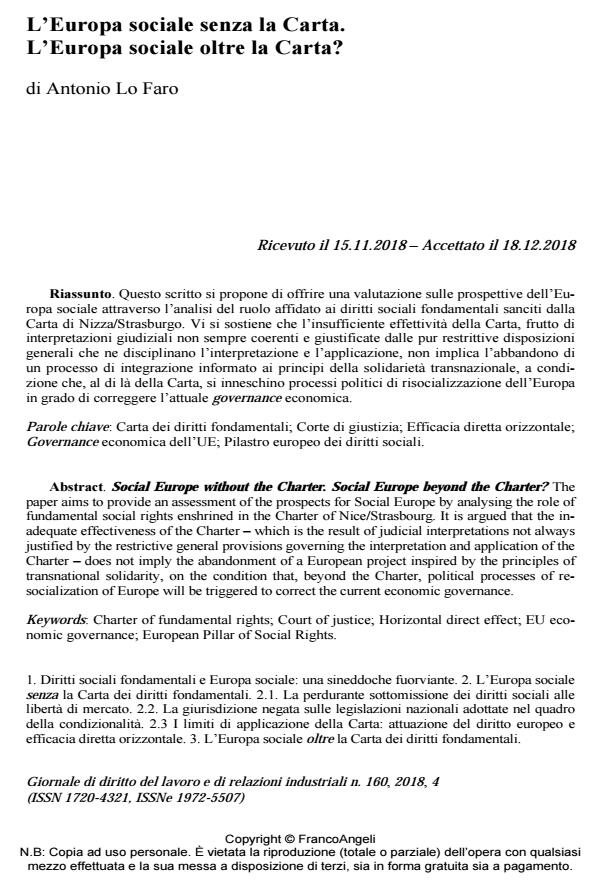Social Europe without the Charter. Social Europe beyond the Charter?
Journal title GIORNALE DI DIRITTO DEL LAVORO E DI RELAZIONI INDUSTRIALI
Author/s Antonio Lo Faro
Publishing Year 2019 Issue 2018/160
Language Italian Pages 22 P. 761-782 File size 287 KB
DOI 10.3280/GDL2018-160004
DOI is like a bar code for intellectual property: to have more infomation
click here
Below, you can see the article first page
If you want to buy this article in PDF format, you can do it, following the instructions to buy download credits

FrancoAngeli is member of Publishers International Linking Association, Inc (PILA), a not-for-profit association which run the CrossRef service enabling links to and from online scholarly content.
The paper aims to provide an assessment of the prospects for Social Europe by analysing the role of fundamental social rights enshrined in the Charter of Nice/Strasbourg. It is argued that the inadequate effectiveness of the Charter - which is the result of judicial interpretations not always justified by the restrictive general provisions governing the interpretation and appli-cation of the Charter - does not imply the abandonment of a European project inspired by the principles of transnational solidarity, on the condition that, beyond the Charter, political processes of re-socialization of Europe will be triggered to correct the current economic governance.
Keywords: Charter of fundamental rights; Court of justice; Horizontal direct effect; EU eco-nomic governance; European Pillar of Social Rights.
Antonio Lo Faro, L’Europa sociale senza la Carta. L’Europa sociale oltre la Carta? in "GIORNALE DI DIRITTO DEL LAVORO E DI RELAZIONI INDUSTRIALI " 160/2018, pp 761-782, DOI: 10.3280/GDL2018-160004